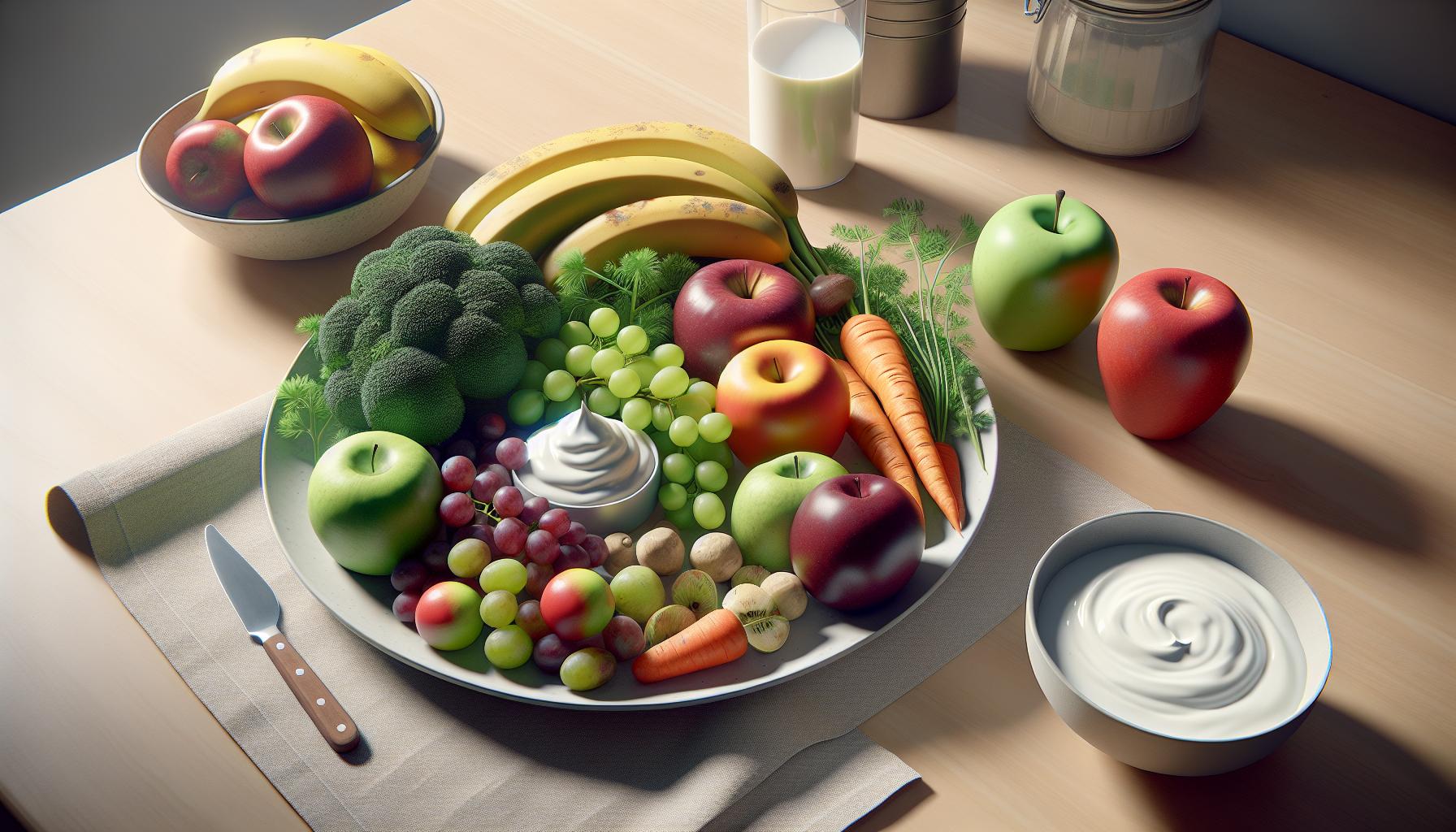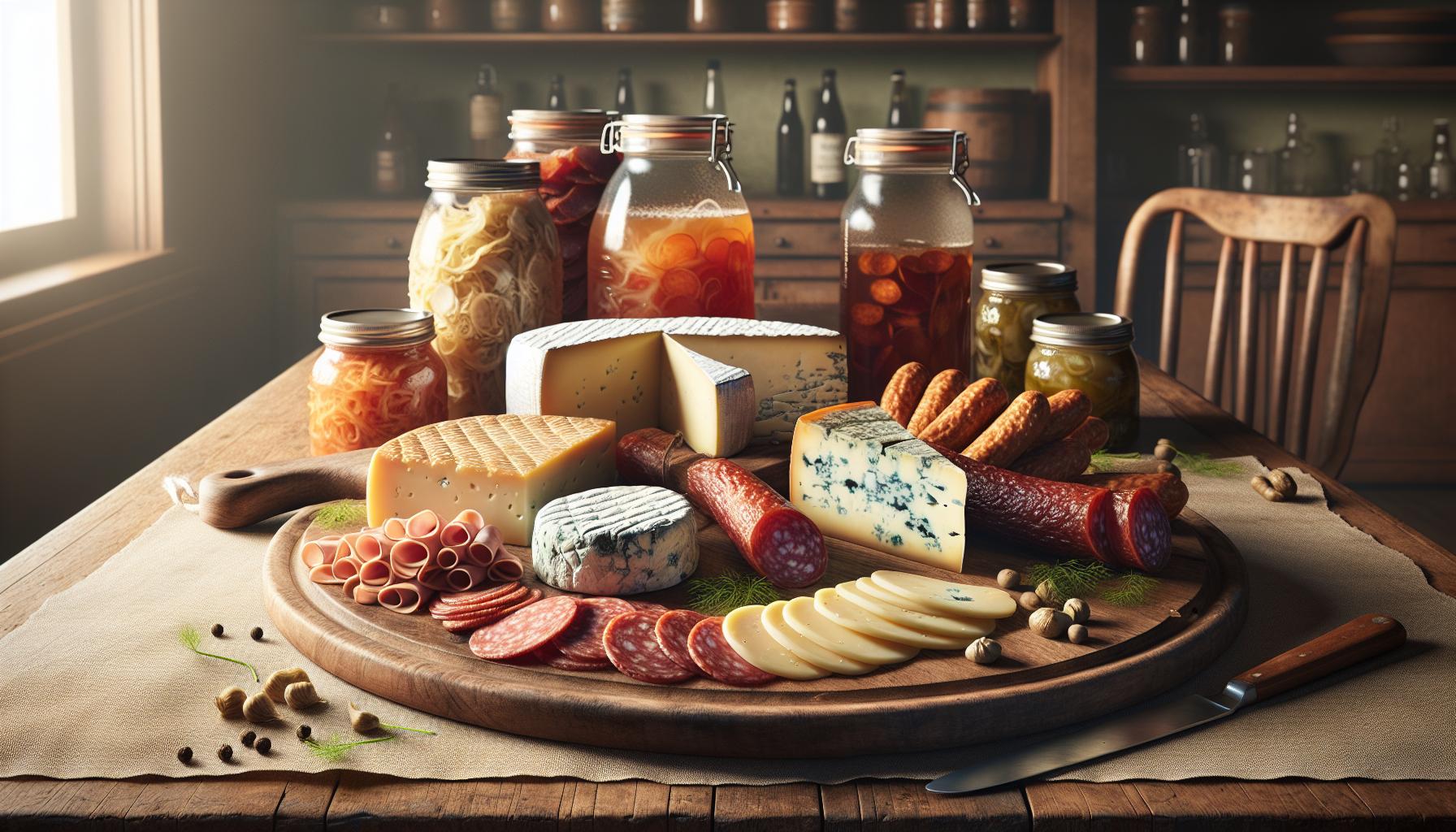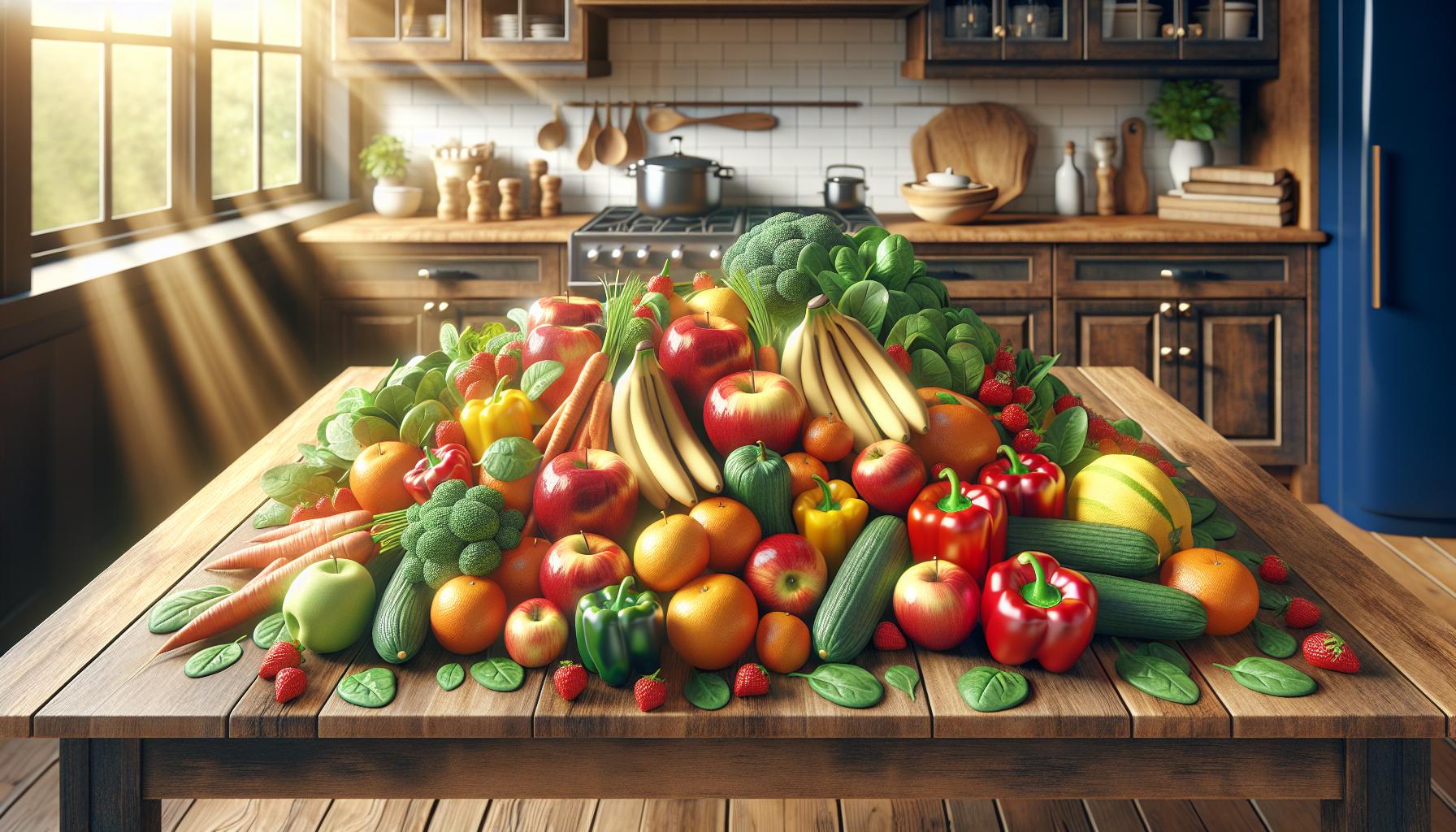Managing MAOI dietary restrictions doesn’t have to feel like navigating a culinary minefield. These powerful antidepressants can be life-changing but they do come with some special dining considerations. The good news? The list of foods to avoid isn’t as daunting as it might seem at first glance.
For those taking MAOIs (Monoamine Oxidase Inhibitors) understanding what’s safe to eat is crucial for preventing potentially dangerous interactions. While the thought of scrutinizing every meal might seem overwhelming many people successfully incorporate these medication-friendly dietary guidelines into their daily routines. With proper knowledge and planning enjoying delicious meals while taking MAOIs is absolutely achievable.
MAOI Dietary Restrictions
MAOI medications are powerful antidepressants that block an enzyme called monoamine oxidase in the brain. These prescription drugs target specific neurotransmitters to alleviate depression symptoms.
Common FDA-approved MAOI medications include:
- Phenelzine (Nardil)
- Tranylcypromine (Parnate)
- Selegiline (Emsam)
- Isocarboxazid (Marplan)
The mechanism of action involves:
- Preventing the breakdown of neurotransmitters
- Increasing levels of serotonin dopamine norepinephrine
- Stabilizing mood chemicals in the brain
| Neurotransmitter | Primary Function |
|---|---|
| Serotonin | Regulates mood stability |
| Dopamine | Controls pleasure reward |
| Norepinephrine | Manages energy alertness |
MAOIs function differently from other antidepressants by permanently deactivating monoamine oxidase enzymes. This enzyme deactivation lasts 2-3 weeks after stopping the medication.
Healthcare providers prescribe MAOIs when other antidepressants prove ineffective for treating:
- Major depressive disorder
- Atypical depression
- Social anxiety disorder
- Panic disorder
- Parkinson’s disease
The unique action of MAOIs creates specific dietary considerations because these medications interfere with the body’s ability to process certain compounds found in foods. This interaction makes understanding MAOI dietary restrictions essential for patient safety.
Understanding MAOI Dietary Restrictions

MAOI medications interact with tyramine, a compound found in various foods that can cause dangerous spikes in blood pressure. Understanding specific food restrictions helps prevent adverse reactions while taking these medications.
High-Tyramine Foods to Avoid
Foods containing high levels of tyramine pose significant health risks for MAOI users. These include:
- Aged cheeses: Cheddar, blue cheese, parmesan, camembert
- Fermented foods: Sauerkraut, kimchi, miso, tempeh
- Cured meats: Salami, pepperoni, prosciutto
- Aged or fermented beverages: Red wine, tap beer, kombucha
- Overripe fruits: Bananas, avocados, raspberries
- Protein extracts: Yeast extract spreads, bouillon cubes
- Pickled foods: Herring, pickled vegetables, olives
- Soy products: Soy sauce, tofu, teriyaki sauce
Moderately Safe Foods to Consume with Caution
These foods contain lower tyramine levels but require portion control:
- Fresh dairy products: Cottage cheese, cream cheese, yogurt
- Fresh meats: Chicken, fish, beef within 24 hours of purchase
- Fresh produce: Fresh fruits, vegetables in proper ripeness
- Grains: Rice, pasta, bread, cereals
- Beverages: Coffee, tea, carbonated drinks
- Nuts and seeds: Almonds, sunflower seeds, pumpkin seeds
- Eggs: Fresh eggs prepared any style
- Condiments: Fresh herbs, spices, mustard
Tracking portions helps maintain safe tyramine levels. A food diary supports monitoring consumption patterns.
Most Dangerous Food Interactions

MAOI medications create potentially lethal interactions with foods containing high levels of tyramine. These interactions trigger dangerous spikes in blood pressure known as hypertensive crisis.
Aged and Fermented Foods
High-tyramine aged cheeses pose extreme risks for MAOI users, particularly blue cheese, camembert, and aged cheddar varieties. Fermented foods like sauerkraut, kimchi, and kombucha contain concentrated tyramine levels that accumulate during the fermentation process. Miso, tempeh, and other fermented soy products build up dangerous tyramine concentrations beyond safe consumption thresholds. Beer and wine develop elevated tyramine content through aging and fermentation, making them strictly prohibited. Sourdough bread includes fermented components that increase tyramine levels significantly compared to regular bread varieties.
Certain Meat and Fish Products
Cured meats like salami, pepperoni, and prosciutto contain concentrated tyramine levels from their aging process. Smoked fish products including salmon, mackerel, and herring accumulate tyramine during preservation methods. Game meats develop higher tyramine content when aged or improperly stored compared to fresh cuts. Liver contains naturally elevated tyramine levels plus additional compounds that interact with MAOIs. Caviar and fish roe products concentrate tyramine through curing processes that make them unsafe for MAOI users.
Safe Foods on MAOI Diet

Safe food choices for MAOI users encompass a variety of fresh, unprocessed options that contain minimal tyramine levels. These choices provide essential nutrients while maintaining safety parameters for individuals on MAOI medications.
Fresh Fruits and Vegetables
Fresh fruits maintain safety when consumed at peak ripeness. Safe options include apples, oranges, bananas, berries, grapes, melons, peaches, pears, plums. Fresh vegetables provide essential nutrients without tyramine concerns. Safe choices include:
- Raw leafy greens: lettuce, spinach, kale
- Root vegetables: carrots, potatoes, sweet potatoes
- Cruciferous vegetables: broccoli, cauliflower, cabbage
- Fresh tomatoes, cucumbers, bell peppers
- Fresh corn, green beans, peas
Frozen vegetables remain safe when properly stored at consistent temperatures. Canned fruits in their own juice offer convenient alternatives to fresh options.
Approved Protein Sources
Fresh protein sources offer safe alternatives to aged or fermented options. Safe protein choices include:
- Fresh meat: chicken, turkey, beef, pork (within 24 hours of purchase)
- Fresh fish: cod, halibut, salmon, tilapia (consumed same day as purchase)
- Eggs: all preparations
- Fresh dairy products: cottage cheese, cream cheese, ricotta
- Plant proteins: fresh tofu, fresh legumes, quinoa
Protein sources maintain safety through proper storage at recommended temperatures. Freezing fresh meats immediately after purchase preserves safety for future consumption. Vacuum-sealed packaging extends freshness while maintaining minimal tyramine levels.
Managing Social Situations and Dining Out
Dining out with MAOI dietary restrictions requires advance planning to ensure safe food choices. Calling restaurants ahead allows patrons to discuss menu options with kitchen staff or managers. Here’s how to navigate social dining situations effectively:
At Restaurants:
- Request detailed ingredient lists from servers
- Choose simple dishes with minimal processed ingredients
- Select grilled or steamed items over fermented or aged options
- Order fresh meat preparations cooked to order
- Ask for sauces served on the side
During Social Gatherings:
- Eat before attending parties where food options are uncertain
- Bring MAOI-safe dishes to share at potlucks
- Communicate dietary needs to hosts in advance
- Keep emergency contact information readily available
- Carry medication information in case of reactions
- Label ingredients in prepared dishes
- Provide fresh food options like raw vegetables
- Keep cheese separate from main dishes
- Store condiments individually
- Maintain food preparation dates
- Share specific dietary needs clearly without oversharing medical details
- Express appreciation for accommodation efforts
- Offer to collaborate on menu planning
- Suggest MAOI-safe restaurant options
- Explain food restrictions matter-of-factly
| Safe Restaurant Options | Foods to Request |
|---|---|
| Fresh salad bars | No aged dressings |
| Steakhouses | Fresh-cut meats |
| Sushi restaurants | Fresh fish only |
| American diners | Made-to-order items |
| Mediterranean cuisine | Fresh ingredients |
Modern MAOI Options with Fewer Restrictions
Recent advancements in MAOI medications offer patients more flexibility with dietary choices. Transdermal selegiline (Emsam), delivered through a patch, bypasses the digestive system at lower doses of 6mg/24h.
Several newer MAOIs demonstrate improved safety profiles:
- Moclobemide functions as a reversible MAOI with minimal dietary restrictions
- Rasagiline treats Parkinson’s disease with reduced food interaction risks
- Low-dose oral selegiline (5mg) maintains effectiveness with fewer dietary concerns
| Medication | Delivery Method | Dietary Restrictions |
|---|---|---|
| Emsam 6mg | Transdermal patch | Minimal to none |
| Moclobemide | Oral tablet | Very limited |
| Rasagiline | Oral tablet | Reduced restrictions |
| Selegiline 5mg | Oral tablet | Fewer restrictions |
These modern options target specific enzymes more precisely than traditional MAOIs. Medical professionals now prescribe selective MAO-B inhibitors that reduce tyramine sensitivity. Patients using these newer medications maintain normal eating habits while receiving antidepressant benefits.
Research indicates that lower doses combined with targeted delivery methods decrease the risk of food interactions. The transdermal patch eliminates first-pass metabolism through the liver, reducing tyramine complications at 6mg doses or less.
How It Works
Living with MAOI dietary restrictions requires careful attention but it’s entirely manageable with proper knowledge and planning. Modern medical advances have introduced newer MAOI options with fewer dietary restrictions making treatment more accessible and convenient for patients.
Anyone taking MAOIs can maintain a healthy varied diet by focusing on fresh unprocessed foods and staying informed about potential interactions. With the right approach to meal planning dining out and social situations patients can effectively manage their mental health while keeping their diet safe and enjoyable.
Remember that working closely with healthcare providers and maintaining open communication about dietary challenges ensures the safest and most effective MAOI treatment journey.

